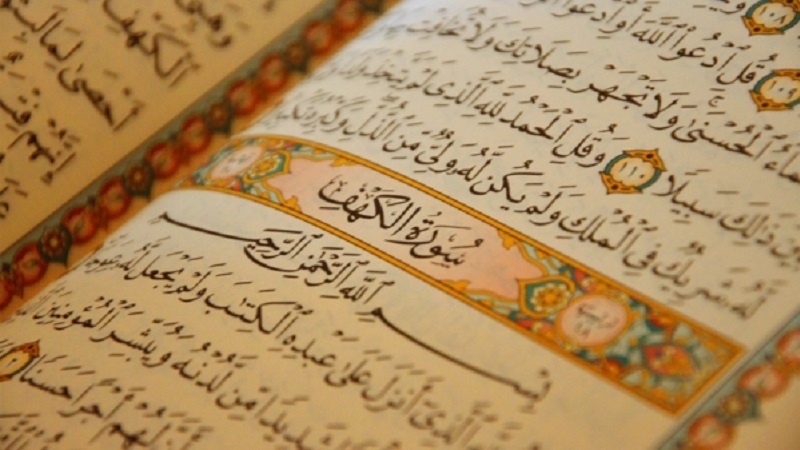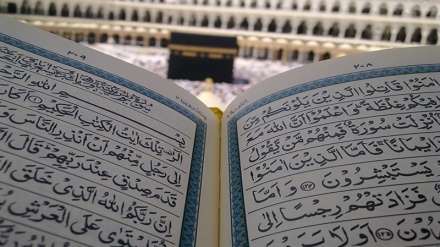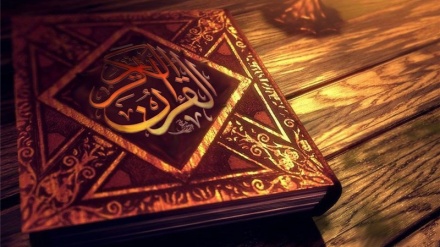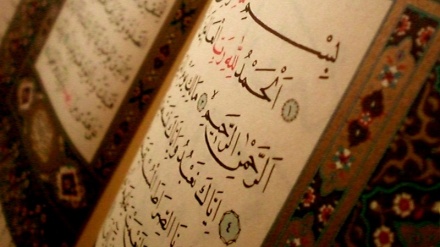Path towards Enlightenment (1001)
Salaam and welcome to another episode of our weekly series titled “Path towards Enlightenment” which is an endeavour to make you and us familiar with an easy and fluent explanation of God’s Final Scripture to all mankind, the holy Qur’an that was revealed to the Last and Greatest of all Messengers, Prophet Mohammad (blessings of God upon him and his progeny).
Today we complete the explanation of Surah Hashr”, which was revealed in Medina and is number 59 in the serial order of compilation of the holy Qur’an. The word “Hashr” in this Surah does not denote the gathering on the Day of Resurrection, but it connotes people's gathering for migration, and refers to the abject fate and defeat of the joint stratagems against Islam and Muslims of the Arab hypocrites and the rebellious Israelites who breached their agreement with the Prophet.
We start from where we left you last Friday, and here are Ayahs 18 and 19:
“O you who have faith, be wary of Allah, and let every soul consider what it sends ahead for tomorrow; and be wary of Allah, indeed Allah is aware of what you do.
“And do not be like those who forgot Allah and He made them forget themselves; it is they who are the transgressors.”
If you might recall, in our explanation of the previous Ayahs of this Surah last Friday, we said hypocrisy makes a person devilish to the extent that he/she embarks on deceiving others and trying in vain to escape the misery in which they have trapped themselves, but there is escape for the Satan and his followers who will be cast into the fires of Hell and remain there forever, for their breaking of promises and tempting simple-minded people to commit sins.
The Ayahs that we recited to you now advises Muslims to reflect on the fate of the ever-rebellious Israelites and also on the fate of the hypocrites who pretend to be Muslims, since it is proper cognition of the Almighty Creator and awe of His Majesty that makes a person better aware of afterlife and the provisions to be prepared for it, keeping in mind that Allah is aware of each and everything.
Ayah 19 means to say that those who are negligent of the Omnipresence of the Almighty Creator, He will make them forget their own selves, and they end up as transgressors. In other words, forgetting God Almighty leads a person to indulge in carnal desires and pleasures of the flesh, in violation of humanitarian values and oblivious of the goal of creation and the certainty of the Day of Resurrection for the Final Judgement. One of the worst afflictions of a person is to forget his/her own self, which means forgetting the God-given inherent faculties that distinguish human beings from other creatures. Thus, it is full awareness of the Divine laws which creates self-control, respect for the rights of others, and the doing of good, while preventing us from committing sin.
These Ayahs teach us that:
- Faith is based upon proper cognition of God in order to abstain from sins.
- We should think of our fate on Judgement Day and make due provisions.
- One who forgets God, forgets the goal of creation and purpose of life; thereby ending up as transgressor of humanitarian values.
We now invite you to listen to Ayah 20 of Surah Ḥashr:
“Not equal are the inmates of the Fire and the inhabitants of Paradise; it is the inhabitants of Paradise who are the successful ones.”
Here a comparison is made between the two groups, that is, the God-fearing believers who are cognizant of the Source of creation and the Resurrection Day, and the heedless ones who are oblivious of the Omnipresence of the Almighty Creator and thus become forgetful of their own selves by indulging in sins and trampling humanitarian values. The disbelievers and unrepentant sinners end up in the fires of Hell as a consequence of their evil deeds, while the true believers who obeyed God are rewarded the bliss of Paradise for their success.
From this Ayah we learn that:
- Physical death is not the end of life to justify the insatiable quest for worldly gains that might end up in the inferno. The transient life of the mortal world is actually the field for sowing the seeds of good deeds in order to reap benefits in afterlife, with the reward of the bliss of Paradise.
- There is no third way other than truth and falsehood, which means human beings will either enter Paradise or fall in Hell.
Here is Ayah 21 of the same Surah:
“Had We sent down this Qur’an upon a mountain, you would have surely seen it humbled [and] gone to pieces with the fear of Allah. We draw such examples for mankind so that they may reflect.”
One of the educational methods of the Holy Qur’an is to give examples and draw comparisons. Here it speaks of the great impact of the Revelation of the Divine Words of the Final Heavenly Scripture that was God entrusted to the Last and Greatest Messenger with the universal message of Islam, Prophet Mohammad (blessings of God upon him and his progeny). The Ayah says that proper reflection on the contents of the Holy Qur’an reveals that its words are so penetrating that had they been sent down upon a mountain possessing intellect and perception, it would have trembled and broken into pieces. It is thus a matter of surprise that the negligent persons have become so stone-hearted because of the sins they commit that the recitation of the Ayahs of the Holy Qur’an has no effect upon them, because they do not reflect upon the contents of the Heavenly Scripture to acquire awe and proper cognizance of the Almighty Creator.
This Ayah teaches us the following:
- At times, the Holy Qur’an applies indirect methods through similitudes, to draw comparison in order to impact the audience.
- The hearts of the disbelievers and sinners become harder than stones.
- Failure to reflect upon Divine Words is to drift away from truth.
Now we conclude the explanation of Surah Hashr with the recitation of Ayahs 22, 23, and 24:
“He is Allah, there is no god except Him; Knower of the unseen and the seen, He is the All-Beneficent, the All-Merciful.
“He is Allah, there is no god except Him; the Sovereign, the All-Holy, the All-Benign, the Securer, the All-Conserver, the All-Mighty, the All-Compeller, the All-Magnanimous. Glorified be Allah from any partners that they may ascribe (to Him).
“He is Allah, the Creator, the Maker, the Granter (of forms and colour); His are the Most Excellent Names. Whatever there is in the heavens and in the earth glorify Him and He is the All-Mighty, the All-Wise.”
The reference here is to some of the Attributes of the Almighty Creator, whose Chosen Name is Allah with which all the three Ayahs begin, followed by 15 of His Attributes, with His Oneness being the first and foremost. He is fully aware of all things, whether visible or unseen. His Mercy is All-Encompassing and He is the Most Beneficent. His Sovereignty rules over the entire universe. He is the Holy, the Benign, the Impeccable, the Wise, and the Just who never wrongs anyone and guarantees security to all. He is the Omnipotent and the Omniscient with Power over all and everything. He is the Granter of the various forms, shapes, sizes, and colours that abound in the universe. His are the Most Excellent Names and He is Magnanimous and far Glorious to have any partner.
These Ayahs teach us that:
- God’s Awareness and Mercy have no limits and encompass everything.
- The One and Only Creator of the universe is also its Absolute Ruler.
- He is free of any shortcoming or flaw and whatever He bestows are favours and security.
- Only Allah deserves Glory; sanctified is He with the Most Excellent Attributes, and Wise, Impeccable, and Absolutely Perfect is He.
Well dear listeners, on this note we come to the end of Surah Ḥashr, and Insha Allah, will start explanation of Surah Mumtaḥanah next week. God bless you and goodbye until then.
RM/AS/SS



